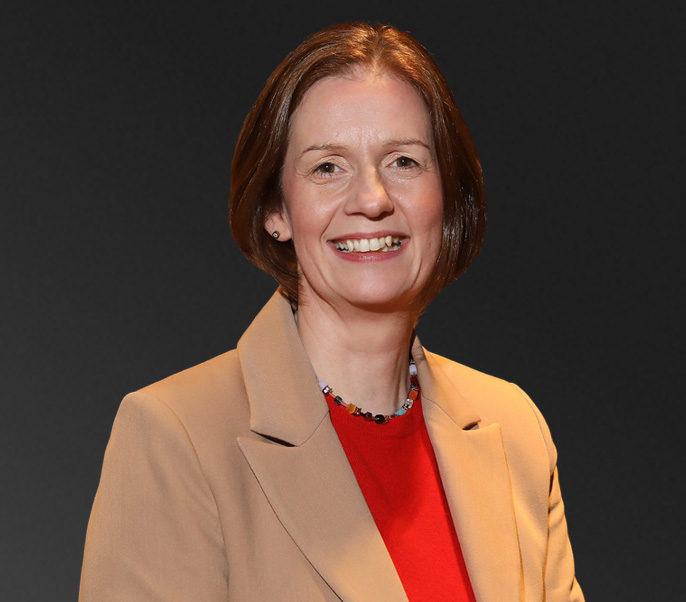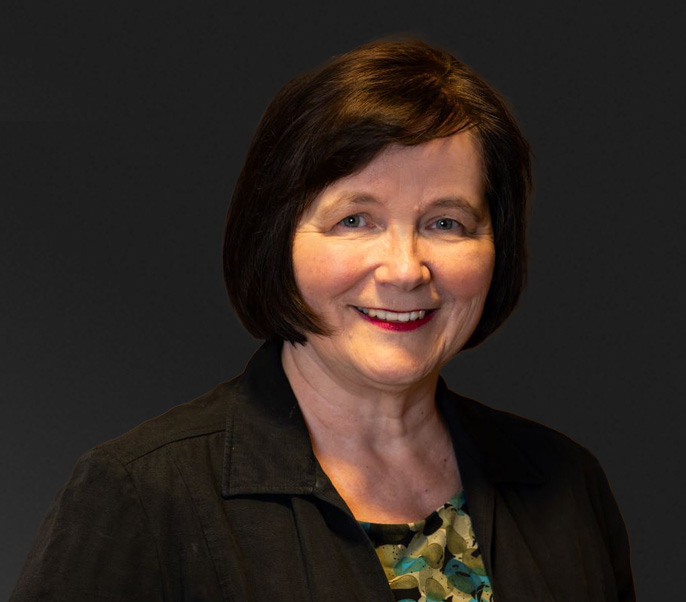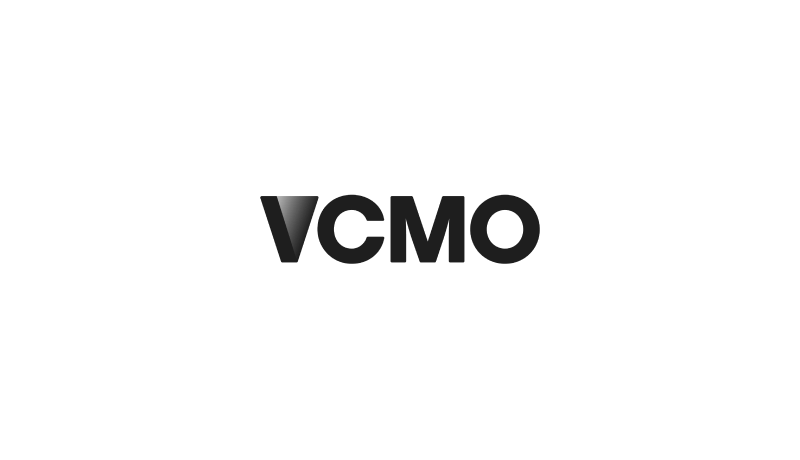Understand key Fractional CMO terms, engagement models and strategic marketing language used in growth-stage businesses.
Introduction
The role of Chief Marketing Officer is evolving. As businesses face mounting complexity, from digital transformation to economic uncertainty, traditional full-time leadership models are being reimagined. In this climate, the Fractional CMO has emerged as a compelling alternative — offering companies access to senior strategic expertise without the cost or commitment of a permanent hire.
This article is designed to support both sides of the decision. For CEOs, founders and investors, it offers a clear, commercially grounded explanation of how and when to embed fractional leadership. For experienced CMOs considering a portfolio career, it reveals how the model delivers board-level impact — often with greater focus and less burnout than a full-time post.
In this article Paul Mills covers what a Fractional CMO is (and isn’t), how the model differs from interim, agency, or consultant support, and when it creates the most value. We’ll also explore pricing models, expected outcomes, and what to consider when hiring. Whether you’re hiring or becoming a Fractional CMO, this is your strategic primer for understanding the model’s true potential.
What is a Fractional CMO?
A Fractional CMO is a senior marketing leader engaged on a part-time or time-bound basis to lead the marketing function of a business. Unlike consultants who advise from the sidelines or agencies that execute defined scopes, a Fractional CMO is embedded — often acting as a member of the executive team, contributing to board discussions, and leading internal marketing teams or external partners.
Their remit is strategic and cross-functional. They may define go-to-market strategies, reposition brands, build marketing infrastructure, or restructure underperforming teams. Crucially, they hold accountability for marketing outcomes — but flex in time, scope, and duration to match the business’s current needs and commercial reality.
While the title may suggest dilution, the effect is often the opposite. Fractional CMOs bring deep experience across sectors and stages, delivering focus and objectivity that can be hard to sustain from within. The term “fractional” refers to their time commitment, not their strategic influence — a distinction that is vital to understanding their value.
Watch this episode of Fractional Futures where Paul Mills and Lydia McClelland explain what a Fractional CMO is and does.
What is Fractional Marketing Leadership?
Fractional marketing leadership is a flexible operating model that allows businesses to access senior-level marketing expertise, or execution — without committing to full-time headcount. It decouples strategic capability from permanent resourcing, enabling companies to scale their marketing maturity in a measured, commercially appropriate way.
At its core, fractional marketing is about outcomes, not job titles. It may involve a Fractional CMO setting the strategic agenda, a specialist contractor managing digital campaigns, or a hybrid team covering execution. The model flexes up or down based on need — whether that’s launching a product, entering new markets, or rebuilding brand architecture.
The appeal lies in control and adaptability. Businesses no longer need to delay strategic marketing decisions due to gaps in leadership or internal bandwidth. Instead, they can embed fractional expertise exactly where and when it’s needed, aligning investment with growth ambitions — not overheads.
Why Are Businesses Hiring Fractional CMOs?
The rise of the Fractional CMO is not a passing trend, but a structural response to changing business conditions. For many organisations — especially those in scale-up, transformation, or turnaround mode — the traditional model of hiring a full-time senior marketing executive is increasingly misaligned with operational and financial reality.
First, there’s cost. Hiring a seasoned CMO on a full-time salary, with associated benefits and equity, is often beyond reach — or unjustifiable — for mid-sized businesses. Fractional CMOs offer access to that calibre of leadership without the long-term financial commitment. Second, speed. Businesses facing strategic inflection points need action now. Fractional leaders can be onboarded rapidly and start delivering within weeks, not months.
Third, focus. Fractional CMOs are typically brought in with defined objectives and a mandate to solve specific problems. Their independence and experience often allow them to cut through legacy noise, challenge assumptions, and reset direction.
For businesses grappling with stalled growth, fragmented brand messaging, or underperforming marketing teams, fractional leadership offers a strategic fix — not a tactical patch.

“We’re not here to build empires. We’re here to deliver clarity, focus, and momentum — quickly.”
When to Bring a Fractional CMO Into the Business
While no two businesses follow the same trajectory, there are common inflection points where the case for a Fractional CMO becomes especially compelling. These are not simply moments of crisis or constraint — they are strategic junctures where expert marketing leadership can unlock growth, mitigate risk, or accelerate change.
- You can't justify a full-time CMO or Marketing Director - Some businesses can't afford the six-figure salary and added benefits that come with hiring a full-time CMO.
- You’re preparing for a funding round or exit - Marketing must articulate the company’s positioning, traction, and market opportunity with credibility. A Fractional CMO ensures your story is investment-grade — across decks, data, and brand narrative.
- You’ve reached product-market fit but growth has stalled - When referrals dry up and acquisition costs rise, it’s time to rethink your go-to-market strategy. A Fractional CMO diagnoses where the model is misaligned and defines a scalable growth plan.
- You’ve outgrown your marketing team - Many early-stage companies have capable doers but lack strategic oversight. A Fractional CMO professionalises the function, restructures teams, and builds leadership capability — without adding permanent headcount.
- You’ve pivoted the business or repositioned the brand - Strategic pivots demand brand clarity, internal alignment, and disciplined execution. A Fractional CMO ensures that message, market, and model are all working in sync.
- You’re entering new markets or launching new products - Expanding beyond your home market or existing offer requires a robust GTM plan. Fractional CMOs bring tested frameworks to manage complexity, avoid dilution, and ensure fit-for-market execution.
- You’ve lost your existing CMO or need interim cover - When continuity is critical — and the permanent hire is months away — a Fractional CMO can step in, stabilise the team, and keep commercial momentum moving forward.
Suggested reading: Signs Your Business Needs a Fractional CMO
Ideal Scenarios for Hiring a Fractional CMO
While trigger points often reveal the need for strategic marketing leadership, not all situations are best served by a full-time hire. The Fractional CMO model is particularly well-suited to organisations navigating moments of change, complexity, or constrained resources — but with ambition to move fast and build strong foundations. These scenarios typically involve high-stakes marketing decisions that cannot be postponed, yet do not justify the fixed cost or long onboarding of a permanent CMO.
B2B SaaS scale-ups, for instance, often reach £2–5 million in turnover before recognising the need for strategic brand clarity and customer segmentation. At that stage, hiring a full-time CMO may feel premature. A fractional leader can build the go-to-market plan, establish KPIs, and shape the team — delivering senior-level outcomes without locking in long-term overheads. Similarly, private equity-backed businesses undergoing a buy-and-build strategy may require interim strategic leadership across multiple brands. A Fractional CMO can orchestrate marketing integration, clarify positioning, and build repeatable demand-generation infrastructure across the group.
Other ideal use cases include family-owned businesses seeking modernisation without a cultural rupture, or international firms looking to establish a UK or EMEA marketing presence before investing in a regional CMO. In all these cases, the common denominator is this: the business requires marketing leadership with immediate commercial impact — but not on a permanent, full-time basis.
Free Download: The Ultimate Guiude to Hiring a Fractional CMO
We've published a comprehensive guide that helps you assess whether the fractional model is right for your business or portfolio company — and how to ensure it delivers genuine commercial impact.
.jpg)
How a Fractional CMO Fits Into Your Business
A Fractional CMO does not operate as an external observer. The model is most effective when the individual is embedded within the organisation — participating in leadership meetings, influencing cross-functional strategy, and leading internal and external teams with the authority of an executive, not a contractor. While their time may be limited, their presence in the business is intentional and strategic.
This embedded approach creates trust, continuity, and accountability. The Fractional CMO typically holds ownership of the marketing plan, budget, and team outcomes — aligning efforts with business goals while managing resources with the same discipline as a permanent executive. They often act as a bridge between the CEO and the marketing function, translating business strategy into actionable marketing roadmaps, and identifying capability gaps that may otherwise go unnoticed.
Operationally, Fractional CMOs may work one to three days per week, depending on scope and need. They often shape the cadence of leadership input — combining weekly sprints with monthly board updates and quarterly strategic reviews. Many also play a critical role in developing or mentoring internal talent, building the function to a point where permanent leadership may eventually be installed.
The goal is not dependency — it’s acceleration. A well-fitted Fractional CMO becomes a catalyst for commercial clarity, aligning teams, sharpening execution, and ensuring marketing moves in step with the broader business strategy.
Fractional CMO Roles: Key Areas of Expertise
The value of a fractional CMO lies in their breadth of expertise and ability to deliver strategic impact across multiple marketing disciplines. Unlike specialists focused on execution, Fractional CMOs operate at the intersection of strategy, leadership, and performance. Below are eight core areas where they typically add the most value:
1. Market Fit & Brand Positioning
Fractional CMOs help businesses crystallise their value proposition and align it to customer needs. This includes competitor analysis, audience segmentation, and brand messaging — ensuring that positioning is differentiated, credible, and capable of driving strategic growth.
2. Product Strategy
They support product-market alignment by advising on pricing models, feature prioritisation, and launch sequencing. Their role often involves coordinating between product, sales, and marketing to ensure go-to-market strategies are commercially viable and tightly executed.
3. Aligning Marketing to Commercial Goals
A key strength of seasoned Fractional CMOs is translating board-level objectives into actionable marketing plans. They establish clear KPIs linked to revenue, margin, or market share — removing the disconnect between activity and impact.
4. Growth and Demand Generation
From paid media to partner channels, Fractional CMOs design full-funnel demand strategies. They assess existing performance, plug gaps, and create scalable programmes that drive predictable pipeline growth.
5. Digital Strategy
They bring rigour to digital strategy decision-making — from MarTech stack optimisation to website performance, SEO, content strategy, and CRM alignment. They ensure digital is not just present, but productive.
6. Marketing Operations & Efficiency
Fractional CMOs often diagnose inefficiencies in process, resourcing, and spend. They standardise workflows, introduce measurement frameworks, and improve ROI by prioritising what works — and stopping what doesn’t.
7. Team Building and Coaching/Mentoring
Many fractional leaders are also talent developers. They assess team capability, restructure where necessary, and mentor junior and senior marketers — often leaving behind a stronger, more autonomous function.
8. Working with Existing Suppliers
Rather than replace external agencies or freelancers, Fractional CMOs often improve how they’re managed. They hold suppliers accountable to performance, reset expectations where needed, and align activity with strategy.

“You’re not just filling a gap. You’re recalibrating the system. Every decision made should lift the capability and confidence of the business, not just the metrics.”
Rachael Wheatley - Chartered Fractional CMO, VCMO
The Benefits of Fractional Marketing
For businesses facing strategic complexity or constrained resources, the fractional model delivers an elegant balance between impact and flexibility. Rather than dilute capability, it often amplifies it — by focusing on what truly matters, delivered by senior talent with broad perspective and zero agenda.
Key benefits of embedding fractional marketing leadership include:
- Strategic clarity without delay - Fast access to seasoned marketing leadership — no protracted hiring cycle, no interim guesswork.
- Executive-level thinking at a lower cost - Access the calibre of a £200k+ CMO without committing to full-time payroll, equity, or overheads.
- Focus on outcomes, not activity - Fractional CMOs prioritise commercial results. They won’t just “do more” — they’ll align effort to impact.
- Flexible scope and engagement - Scale involvement up or down based on business needs — from one day a week to multi-brand portfolio leadership.
- Independence and objectivity - Operating without internal bias, fractional leaders can challenge assumptions and reset strategy with clarity.
- Capability uplift across the function - By mentoring teams and optimising partners, they leave a legacy that lasts well beyond the engagement.
When deployed thoughtfully, the model becomes more than just a stopgap — it’s a strategic enabler for modern businesses seeking agility, accountability, and senior-level thinking without structural drag.
Part-Time or Contract Basis? Understanding the Engagement Model
Despite its growing popularity, the term “fractional” is still widely misunderstood. It’s often conflated with interim contracting or part-time employment, yet the reality is more nuanced. A Fractional CMO is not a short-term fix or a scaled-down employee — they are a strategic partner engaged with intention, typically via a flexible services agreement rather than employment contract.
Most fractional engagements fall into one of two models. The first is retained fractional leadership, where the CMO commits a set number of days per month — usually between four and twelve — on a rolling basis. This model suits businesses seeking continuity and long-term alignment. The second is a FLEX or project-based model, where the CMO is engaged for a defined scope, such as a brand repositioning, a team restructure, or a go-to-market plan. This is ideal for businesses with time-sensitive needs but uncertain ongoing requirements.
Engagements are often structured with commercial clarity. There is typically no notice period, no exclusivity, and no benefits — but also no ambiguity about accountability. The business gets access to high-level strategic input without the risk, cost, or complexity of full-time hiring. As a result, the model is increasingly favoured by venture-backed startups founder-led businesses, and even mid-market corporates seeking to drive change without adding weight.
What’s the Difference Between a Fractional CMO and a CMO on a Fixed-Term Contract?
While both models provide non-permanent marketing leadership, the Fractional CMO and the fixed-term contract CMO differ fundamentally in intent, structure, and impact. A fixed-term CMO is usually hired to replicate a full-time executive post for a set duration — typically covering maternity leave, a vacancy, or a defined transformation programme. They often inherit existing responsibilities wholesale, operating as a traditional employee in all but permanence.
In contrast, a fractional CMO is engaged with a different lens: not to replicate a prior role, but to solve specific challenges or unlock latent growth. They may operate one or two days a week, with a mandate shaped around strategic deliverables, not just operational coverage. The relationship is governed by a services agreement — not an employment contract — which offers both parties greater agility.
Culturally, the difference matters too. Fixed-term leaders may integrate into the organisational hierarchy, focusing on continuity and risk avoidance. Fractional CMOs are often change agents, brought in to challenge the status quo, establish discipline, and bring external perspective. Their remit is sharper, their engagement shorter, and their value delivery more tightly focused on outcomes.
For businesses in transition — particularly those without prior senior marketing leadership — the fractional route offers a lower-risk, higher-impact path to embedding capability without delay.
What’s the Difference Between a Fractional CMO and an Agency?
While both Fractional CMOs and marketing agencies contribute external expertise, they serve fundamentally different purposes. An agency is typically engaged to deliver executional output — from creative production to paid media buying, SEO, or content marketing. Their value lies in scalable delivery, specialised skills, and operational bandwidth. However, they do not set marketing strategy, nor do they usually have direct accountability for commercial outcomes.
A Fractional CMO, by contrast, is a strategic leader. They don’t just advise; they direct. Their role is to define the marketing strategy, align it with business goals, and lead internal and external resources to deliver results. This often includes overseeing agencies — setting briefs, holding them accountable to performance metrics, and ensuring activity is aligned with the company’s broader commercial agenda.
The two models are not mutually exclusive. In fact, they are often complementary. Many businesses engage a Fractional CMO specifically to unlock more value from their agencies — by improving clarity, focus, and strategic direction. Without that senior layer, agency partnerships can drift into busywork or lose connection to revenue impact.

“Most agencies execute well. But execution without direction wastes budget. Fractional leadership makes the engine point in the right direction — and run faster.”
Lydia McClelland - Chartered Fractional CMO, VCMO
What to Consider When Hiring a Fractional CMO
Choosing the right Fractional CMO requires more than scanning a CV. The best outcomes emerge when businesses approach the hire with clarity, intent, and internal readiness. Here are six key factors to consider:
- Strategic Fit - Look beyond sector experience. Prioritise strategic capabilities that match your growth challenges — whether that’s repositioning, scaling demand, or building the team.
- Cultural Compatibility - Fractional leaders need to integrate quickly and influence without authority. Choose someone who aligns with your values and communicates effectively with both leadership and delivery teams.
- Decision Rights & Scope - Be clear on what the CMO will own — budget, team, agency relationships — and where final decisions sit. Ambiguity here undermines trust and traction.
- Time Commitment & Cadence - Define how many days per month you need and what the engagement rhythm looks like (e.g. on-site days, sprint reviews, board reporting).
- Onboarding & Knowledge Transfer - A structured onboarding process — even if lightweight — accelerates impact. Provide access to plans, performance data, and team members early.
- Exit Strategy or Transition Plan - Whether the role is long-term or a bridge to a permanent hire, align on what success looks like — and what happens next.
Done right, hiring a Fractional CMO is not just a tactical fix — it’s a strategic enabler.

“You’re not just buying time — you’re buying clarity, alignment, and motion.”
Ruth Napier - Chartered Fractional CMO, VCMO
How Much Should You Pay a Fractional CMO?
Pricing for Fractional CMOs varies significantly based on experience, scope, and the maturity of the business they’re supporting. Unlike traditional hires, Fractional CMOs are not compensated via salary, benefits, or bonuses — instead, they charge a day rate or monthly retainer under a services agreement. This creates commercial flexibility, but also requires clear alignment on scope and outcomes.
In the UK market, day rates typically range from £750 to £2,000+, with most experienced Fractional CMOs charging between £1,000 and £1,500 per day. Retained engagements may run from £4,000 to £12,000+ per month, depending on the number of days worked, seniority, and complexity of the engagement. Project-based work — such as a strategic audit or go-to-market plan — may be priced separately.
Several factors influence cost:
- Business stage: Startups may require less time but more hands-on input; scale-ups and private equity-backed firms often pay more for pace and precision.
- Industry: Sectors with long sales cycles or regulatory constraints (e.g. financial services, life sciences) may command higher rates due to specialist knowledge.
- Breadth of remit: Leading both brand and demand generation, managing suppliers, or mentoring a team adds depth and responsibility.
While the headline figures may seem high compared to hiring internally, it’s essential to consider total cost of ownership. A full-time CMO on £180,000 salary may cost over £250,000 with benefits and overheads — and still take six months to hire. A Fractional CMO can begin adding value within weeks, with no long-term obligation.
What Results Can I Expect from a Fractional CMO?
While outcomes vary by business stage and strategic goals, most Fractional CMO engagements are anchored in measurable progress across commercial, operational, and team dimensions. Typical results include:
- Clear, prioritised marketing strategy - A focused roadmap aligned to business objectives, not a laundry list of disconnected activity.
- Improved lead generation and pipeline performance - More qualified opportunities, lower acquisition cost, and better alignment between sales and marketing.
- Sharper brand positioning and messaging - Clarity on who you are, what you stand for, and why you matter — internally and externally.
- Increased marketing efficiency - Smarter resource allocation, reduced waste, and tighter control of budgets, tools, and supplier performance.
- Stronger team capability and structure - Clear roles, better morale, and a team that knows what good looks like.
- Faster decision-making - With experienced leadership in place, bottlenecks are removed and key marketing decisions happen at pace.
Importantly, a Fractional CMO does not promise instant transformation. But within 30–90 days, most businesses see greater strategic focus, improved marketing confidence, and the momentum needed to drive commercial outcomes.
Summary: A Flexible, Cost-Effective Route to Strategic Growth
The rise of the Fractional CMO reflects a broader shift in how businesses access senior leadership: less about ownership, more about outcomes; less permanence, more precision. For founders, CEOs, and investors seeking to unlock growth without overcommitting resource, fractional marketing leadership offers a compelling blend of agility, expertise, and impact.
Whether the goal is to sharpen strategy, rebuild demand generation, professionalise the team, or steer through a critical transition, the Fractional CMO model provides access to board-level thinking without structural drag. It delivers focused leadership exactly when and where it’s needed — and steps aside when it’s not.
For experienced marketing leaders entering the next chapter of their careers, it also offers a high-leverage, portfolio-based way to make a difference — trading internal politics for autonomy, and daily firefighting for deliberate impact.
Fractional CMOs are not a compromise. They are a strategic choice for businesses ready to scale with intention — and for marketers ready to lead on their own terms.
Get in touch: If this article reflects what you’re experiencing, get in touch to explore whether fractional marketing leadership is the right fit for your business. Or if you have questions about the Fractional CMO model, visit our dedicated service page.
About VCMO
VCMO is a UK-based provider of fractional marketing services, supporting B2B SMEs—ranging from funded scale-ups to mid-tier and private equity-backed businesses—through key moments of growth and transformation. Its Chartered Fractional CMOs and SOSTAC® certified planners embed strategic marketing leadership into organisations navigating product launches, new market entry, acquisitions, and leadership gaps.
What’s a Rich Text element?
The rich text element allows you to create and format headings, paragraphs, blockquotes, images, and video all in one place instead of having to add and format them individually. Just double-click and easily create content.
- By following these tips, you can make sure you’re noticed on LinkedIn and start building the professional connections you need to further your career.
-

Static and dynamic content editing
A rich text element can be used with static or dynamic content. For static content, just drop it into any page and begin editing. For dynamic content, add a rich text field to any collection and then connect a rich text element to that field in the settings panel. Voila!
How to customize formatting for each rich text
Headings, paragraphs, blockquotes, figures, images, and figure captions can all be styled after a class is added to the rich text element using the "When inside of" nested selector system.


Ready to take your marketing to the next level? Let us help you get there.
Subscribe to Our Newsletter
Fractional Edge is our montly newsletter sharing expert opinion on the latest trends in fractional leadership, curated marketing content from leading sources, VCMO events, and much more. Subscribing is quick — just add your name and email.












.jpg)




